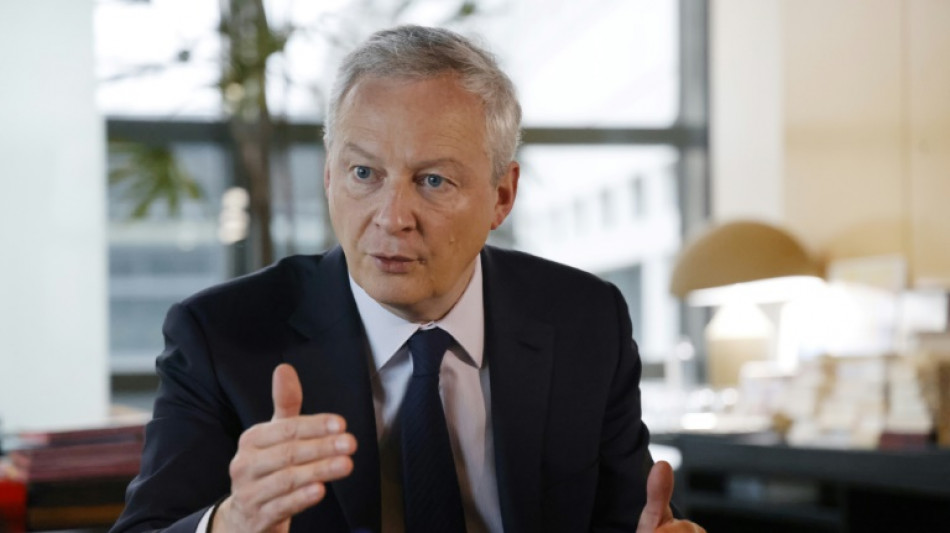
France urges 'transparency' over US climate subsidies

French Economy Minister Bruno Le Maire has called for "transparency" between the United States and Europe over the controversial granting of green subsidies and tax breaks.
Le Maire and his German counterpart Robert Habeck travel to Washington on Tuesday to meet Treasury Secretary Janet Yellen and discuss a landmark US spending bill that has Europe on edge.
The Inflation Reduction Act (IRA) funnels $370 billion into subsidies for America's energy transition -- including tax cuts for US-made electric cars and batteries.
While the US wants to reduce dependence on Chinese imports, Europe is worried about unfair competition and the collateral damage if companies relocate outside the EU.
"We must be realistic. The IRA is a game changer," Le Maire told AFP in an interview on Friday.
"The IRA offers competitive advantages which, coupled with very low energy prices in the United States, poses a risk to our industries."
The EU is pushing the United States to make exemptions for European companies. But a special joint task force set up to address Brussels' concerns has yielded little fruit.
"The most important thing is that we cooperate with allies to have transparency about the amount of subsidies and tax credits that will be granted," said Le Maire.
"If you know at what price green hydrogen will be released in the United States and at what price it will be released in Europe, this allows you to guarantee fair competition conditions."
Le Maire said that the European Commission had proposed clauses aligning with the American subsidies, "but for these alignment clauses to work, we still need to know how much the subsidies will be."
To head off the threat to European industry, the EU on Wednesday unveiled proposals such as the controversial relaxation of state aid rules, to level the playing field.
However, member states do not agree on how to approach the problem.
In Washington, Le Maire hopes to secure a "cooperative approach to the most strategic investments in sensitive areas such as semiconductors."
"It's not like there is an overproduction of batteries, an overproduction of solar panels, or an overproduction of semiconductors. On the contrary, there are not enough of them," he said.
"The challenge is not to steal very competitive markets. The challenge is that we manage to develop together, in the United States and Europe, an efficient, competitive green industry that is the most innovative on the planet."
After the Washington visit, European Union leaders will hold a summit later in the week that aims to begin crafting a response to the US measures.
V.Allen--TNT